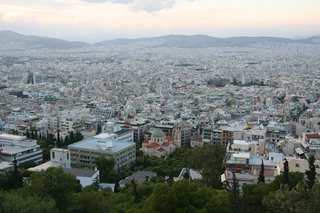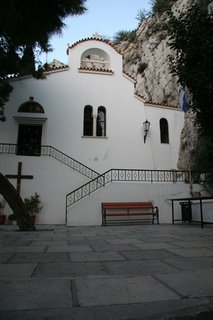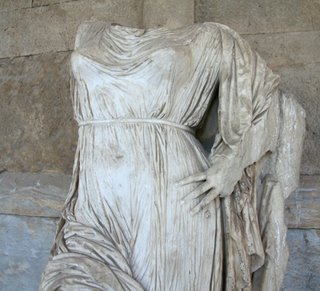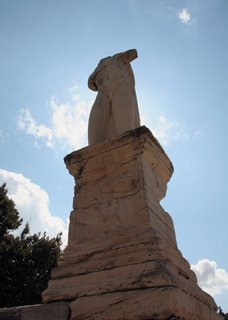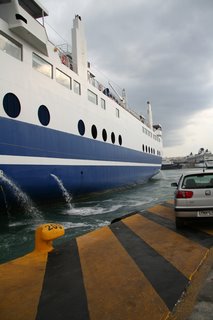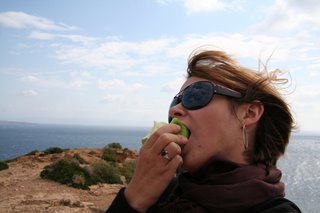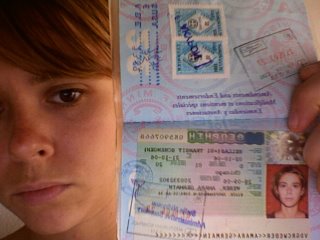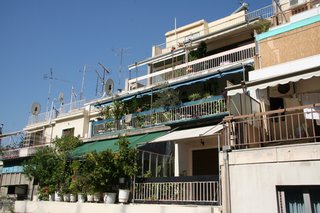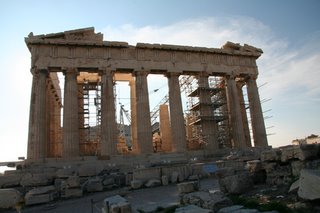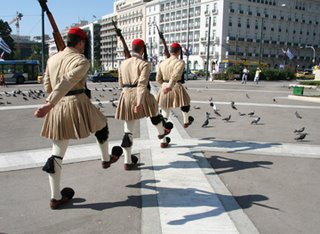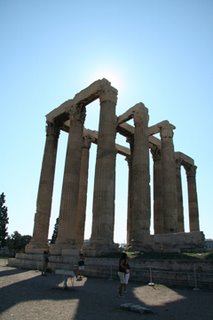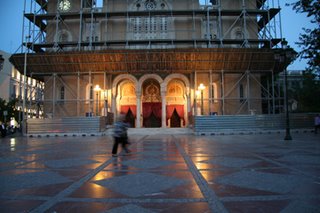Where you are. Where are you from?
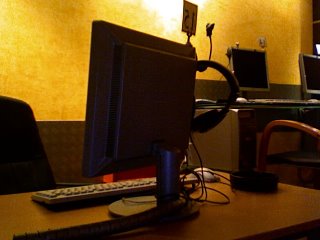
“I haven’t been to Nigeria in 3 years. But I talk on the phone all the time. You can buy cards to talk – 60 minutes for 5 Euros.”
*
“When I get my papers, I will be able to go and come.”
*
“Where are you from?”
“Sudan.”
“Oh. Tough spot there now. Three Euro for the CD?”
*
“I was born in Athens. Unfortunately.”
*
“I am from this place - do you know Macedonia? I love Athens! It is busy and wonderful. I will never return to my home!”
“Of course he loves Athens. He is a villager from the mountains nowhere. I hate Athens. Athens is complete shit. I am from Crete – from Paradise! But there is no work there for the winter so I come here and work bullshit. It is like Hell to me.”
*
“Those visiting Athens, they see beauty, they love it so much. They cannot understand the daily struggle of living here.”
*
“There are no rules for anything. It is like everyone is trying to push and grab. Other European countries are not like this. We are European, but the Mediterranean affects us. It makes us crazy.”
*
“I buy the CDs from Someplace, 1 Euro 50. I sell them 4, 5 Euros. The CDs, DVDs is where the money is. Handbags are not so good. They are too big, and not much profit.”
*
“When the immigrants started coming, we didn’t change anything. Now they are so many here, and there is no support. Nothing.”
*
“I know all the guys in that Square. Mostly we are Nigerians, but there are some from Sudan, some from Senegal and Guinea. We have to run if we see the police. If they catch us, they will take our things. But just wait. Five minutes, and we will be back.”
*
“These Greeks are lazy. They love to enjoy life too much, but it makes them lazy. That is why I don’t like them.”
*
“You can’t trust them.”
*
“You will be learning Greek from many different accents.”
*
“I won’t learn Greek. You know, instead of Zed, they have Omega. I just don’t understand these people.”
*
“The teacher is Albanian, and the students complain to their parents that they can’t understand because she speaks in that way. She came here when she was two. She can speak proper Greek, but not like one of us, you know?”
*
“You have to be strong in yourself when you speak to the parents. If the parent is complaining about the foreign students, you have to be strong to defend those children.”
*
“I feel that I am suffocating in the classroom.”
*
“The teacher was hitting the student. I asked him how can he do that, but his reply was that some of the foreign children only respond to strength. What could I say? He was old, my father’s age.”
*
“There is a new law. If I pay 1,500 Euro, plus lawyer’s fees, I can have one-year residency permit. After one year, I pay again, and maybe get a two-year permit. If I have the permit, I can leave the country without fear of losing my life here.”
*
“The Municipal Office has to call the Prefectorial Office, and they will argue about who knows the correct rules. But they are both stupid and no one knows what is correct.”
*
“Look at this. Greece is a place where bureaucracy has won.”
*
“I told them you are American. That is why we don’t have to wait in the cue with the other foreigners. You see that line? Full of Pakistanis. We would be here for 3 days.”
*





